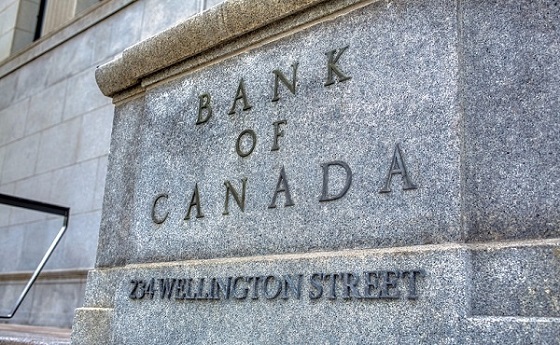CBDC Central Bank Digital Currency
Trump says he will ‘never allow’ central bank digital currency if elected president

From LifeSiteNews
By Matt Lamb
Former federal official Catherine Fitts, now an investment banker, has compared CBDCs to vaccine passports. “The reality as the financial system gets more controlling and more invasive … central bank digital currencies and vaccine passports or digital IDs are sort of the last shutting of the gate”
Former President Donald Trump said he will keep far-left Senator Elizabeth Warren’s “goons” away from cryptocurrency during a recent speech at the Libertarian Party’s national convention.
Trump, the presumptive Republican presidential nominee, made the comments on Saturday, May 25, at the convention in Washington, D.C.
After saying he would stop Democrats’ Green New Deal, Trump said to applause that he “will also stop Joe Biden’s crusade to crush crypto. We’re going to stop it.”
“I will ensure that the future of crypto and the future of Bitcoin will be made in the U.S.A., not driven overseas. I will support the right to self-custody,” he said.
“To the nation’s 50 million crypto holders, I say this: With your vote, I will keep Elizabeth Warren and her goons away from your Bitcoin,” the former president said.
“And I will never allow the creation of a central bank digital currency,” Trump said, to loud applause.
Trump was seeking the Libertarian Party’s support for his nomination, as was Robert F. Kennedy, Jr. The party instead chose Chase Oliver, a homosexual who supports open borders and said he doesn’t find anything wrong with drag queen shows targeting children, among other liberal viewpoints.
Sen. Warren has pushed for further regulation of cryptocurrency, citing alleged concerns about foreign adversaries such as Iran and North Korea using it for their transactions. However, the Blockchain Association, a crypto trade group, criticized the Massachusetts Democrat’s Digital Asset Anti-Money Laundering Act. The letter, signed by national security experts, said Warren’s plan would drive “the majority of the digital asset industry overseas.”
— Matt Lamb (@MattLamb22) June 3, 2024
“This shift could also lead to increased liquidity in unregulated offshore exchanges and a loss of valuable expertise and visibility for the U.S. in the blockchain realm,” the February 2024 letter warned. “Further, this legislation, if implemented, will have no meaningful effect on the foreign illicit actors it targets.”
Central digital currency would give ‘absolute control’ of money to federal government
President Trump has previously criticized a Central Bank Digital Currency (CBDC). “Such a currency would give a federal government — our federal government — absolute control over your money,” he said during a campaign rally in January 2024. “They could take your money, and you wouldn’t even know it was gone.”
“This would be a dangerous threat to freedom, and I will stop it from coming to America,” he said, as previously reported by LifeSiteNews.
The Biden administration is currently exploring creating a CBDC, which has raised civil liberties concerns.
Former federal official Catherine Fitts, now an investment banker, has compared CBDCs to vaccine passports. “The reality as the financial system gets more controlling and more invasive … central bank digital currencies and vaccine passports or digital IDs are sort of the last shutting of the gate,” she told Tucker Carlson in 2023.
“When this gate closes on us, we literally will be sitting in a system where the central banks believe that our assets belong to them and they can dictate where we can spend our money and what we can spend money on,” Fitts, a former Housing and Urban Development official, said.
Banks
Top Canadian bank studies possible use of digital dollar for ‘basic’ online payments

From LifeSiteNews
A new report released by the Bank of Canada proposed a ‘promising architecture well-suited for basic payments’ through the use of a digital dollar, though most Canadians are wary of such an idea.
Canada’s central bank has been studying ways to introduce a central bank digital currency (CBDC) for use for online retailers, according to a new report, despite the fact that recent research suggests Canadians are wary of any type of digital dollar.
In a new 47-page report titled, “A Retail CBDC Design For Basic Payments Feasibility Study,” which was released on June 13, 2025, the Bank of Canada (BOC) identified a “promising architecture well-suited for basic payments” through the use of a digital dollar.
The report reads that CBDCs “can be fast and cheap for basic payments, with high privacy, although some areas such as integration with retail payments systems, performance of auditing and resilience of the core system state require further investigation.”
While the report authors stopped short of fully recommending a CBDC, they noted it is a decision that could happen “outside the scope of this analysis.”
“Our framing highlights other promising architectures for an online retail CBDC, whose analysis we leave as an area for further exploration,” reads the report.
When it comes to a digital Canadian dollar, the Bank of Canada last year found that Canadians are very wary of a government-backed digital currency, concluding that a “significant number” of citizens would resist the implementation of such a system.
Indeed, a 2023 study found that most Canadians, about 85 percent, do not want a digital dollar, as previously reported by LifeSiteNews.
The study found that a “significant number” of Canadians are suspicious of government overreach and would resist any measures by the government or central bank to create digital forms of official money.
The BOC has said that it would continue to look at other countries’ use and development of CBDCs and will work with other “central banks” to improve so-called cross border payments.
Last year, as reported by LifeSiteNews, the BOC has already said that plans to create a digital “dollar,” also known as a central bank digital currency (CBDC), have been shelved.
Digital currencies have been touted as the future by some government officials, but, as LifeSiteNews has reported before, many experts warn that such technology would restrict freedom and could be used as a “control tool” against citizens, similar to China’s pervasive social credit system.
The BOC last August admitted that the creation of a CBDC is not even necessary, as many people rely on cash to pay for things. The bank concluded that the introduction of a digital currency would only be feasible if consumers demanded its release.
Conservative Party leader Pierre Poilievre has promised, should he ever form the government, he would oppose the creation of a digital dollar.
Contrast this to Canada’s current Liberal Prime Minister Mark Carney. He has a history of supporting central bank digital currencies and in 2022 supported “choking off the money” donated to the Freedom Convoy protests against COVID mandates.
Banks
Legal group releases report warning Canadians about central bank digital currencies

From LifeSiteNews
By
“central bank digital currency could hand incredible power to the Government and Bank of Canada to monitor financial transactions, punish whatever behaviours the government deems undesirable, and penalize those on the wrong side of government ambitions”
The Justice Centre for Constitutional Freedoms released a new report examining how the adoption of a central bank digital currency in Canada could undermine the rights and freedoms of Canadians, including their privacy, autonomy, security, equality, and access to economic participation.
Financial transactions are increasingly conducted digitally. In 2023, a mere 11 percent of transactions were conducted with cash, according to Payments Canada.
This trend is not limited to individual consumers. Government entities, including government departments, agencies, and Crown Corporations, have rapidly digitized access to, and delivery of, their goods and services over the past decade.
READ: Mark Carney has history of supporting CBDCs, endorsed Freedom Convoy crackdown
Against this backdrop, in 2017, the Bank of Canada (a Crown Corporation) began exploring the possibility of implementing its own government-issued and government-controlled cashless currency – a central bank digital currency (CBDC).
In a 2023 Bank of Canada survey on CBDCs, however, 82 percent of 89,423 respondents strongly disagreed that the Bank of Canada should be researching or building the capability to issue a CBDC. Despite these results, the Bank of Canada continues to research a CBDC for Canada.
The Justice Centre’s report critically evaluates the impact a CBDC could have on Canadians’ fundamental rights and freedoms. Absent robust legislative protections and oversight, a CBDC could allow the Government and Bank of Canada to monitor Canadians’ purchases, donations, investments and other financial transactions.
A CBDC has the potential to empower government to reward and punish the behaviours and lifestyle choices of individual Canadians, as Communist China does with its “social credit” system. Allowing the government to peer into and influence Canadians’ purchasing behaviours could have a profoundly damaging impact on their privacy and autonomy, cautions the report.
READ: Financial expert warns all-digital monetary system would enable ‘complete control’ of citizens
Canada is not the first jurisdiction to explore a CBDC. This report evaluates the Bank of Canada’s exploration within a global context, applying lessons learned from jurisdictions like Nigeria, the Caribbean, and others.
After analyzing negative outcomes of “going cashless” in jurisdictions such as Australia, Sweden, Finland, and Norway, this report advocates for the value of cash and the need for robust institutional and legislative protections for the use of cash.
Ben Klassen, Education Programs Coordinator at the Justice Centre and lead author of the report, stated, “Many Canadian politicians and policy designers would have us participate in a frantic (and global) race to digitize goods and services, including our dollar. The finish line, we are told, promises heightened profitability, convenience, and security. While the pursuit of innovation and efficiency can deliver worthwhile rewards, we must always remember the values of privacy, autonomy, security, equality, and access to economic participation. Adopting a central bank digital currency risks excluding the homeless, the elderly, the ‘internetless,’ the technologically illiterate, and the conscientious objector.”
“Most seriously, a central bank digital currency could hand incredible power to the Government and Bank of Canada to monitor financial transactions, punish whatever behaviours the government deems undesirable, and penalize those on the wrong side of government ambitions,” continued Mr. Klassen. “This issue should be framed as a contrast between a ‘digital dollar’ and a ‘human dollar’ – our currency cannot be designed without regard for the humans and human values that will be profoundly impacted by its design.”
READ: RFK Jr. warns Americans ‘will be slaves’ if central bank digital currency is established
This report was produced in collaboration with Sharon Polsky – President of AMINAcorp.ca, President of the Privacy & Access Council of Canada, and a Privacy by Design Ambassador with more than 30 years’ experience in advising governments and policy designers on privacy and access matters.
Reprinted with permission from the Justice Centre for Constitutional Freedoms.
-

 Alberta1 day ago
Alberta1 day agoAlberta judge sides with LGBT activists, allows ‘gender transitions’ for kids to continue
-

 Business1 day ago
Business1 day agoCanada Caves: Carney ditches digital services tax after criticism from Trump
-

 Crime1 day ago
Crime1 day agoSuspected ambush leaves two firefighters dead in Idaho
-

 Alberta1 day ago
Alberta1 day agoAlberta Independence Seekers Take First Step: Citizen Initiative Application Approved, Notice of Initiative Petition Issued
-

 Crime14 hours ago
Crime14 hours agoNational Health Care Fraud Takedown Results in 324 Defendants Charged in Connection with Over $14.6 Billion in Alleged Fraud
-

 Health14 hours ago
Health14 hours agoRFK Jr. Unloads Disturbing Vaccine Secrets on Tucker—And Surprises Everyone on Trump
-

 Business3 hours ago
Business3 hours agoElon Musk slams Trump’s ‘Big Beautiful Bill,’ calls for new political party
-

 Censorship Industrial Complex2 hours ago
Censorship Industrial Complex2 hours agoGlobal media alliance colluded with foreign nations to crush free speech in America: House report






